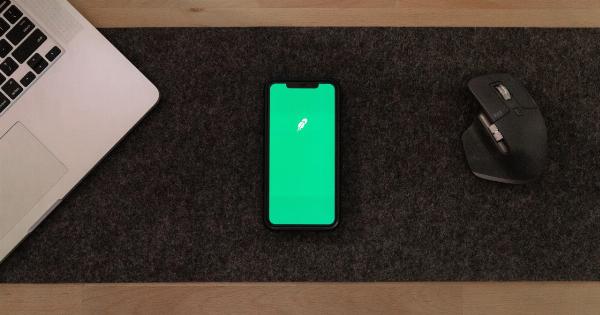Many of us have become accustomed to multitasking and trying to squeeze in as much productivity as possible during the day. One common habit that has emerged is eating in front of the computer.
Whether it’s having lunch while catching up on emails or having snacks while binge-watching a favorite TV show, we often find ourselves gravitating toward eating in front of our screens. However, this seemingly harmless practice can have negative consequences for both our physical and mental well-being.
1. Distractions affect digestion
When we eat in front of our computer, we often get absorbed in our work or entertainment, leading to mindless eating. Our attention is divided, and we are not fully present while consuming our food.
As a result, we tend to eat quickly and without properly chewing our food, which can lead to digestive issues such as indigestion, bloating, and even weight gain.
2. Unhealthy eating habits
Eating in front of a computer can promote unhealthy eating habits. We often reach for convenient, processed snacks that are easy to consume while we work or watch something.
These snacks are typically high in calories, saturated fats, and added sugars, contributing to weight gain and a higher risk of developing chronic diseases like obesity, diabetes, and heart disease. Additionally, we may overlook portion sizes and overeat without even realizing it.
3. Lack of mindful eating
Mindful eating is the practice of being fully engaged and aware of the food we consume. It involves savoring each bite, paying attention to hunger and fullness cues, and enjoying the overall dining experience.
Eating in front of the computer prevents us from being mindful about our meals. Without mindful eating, we may fail to listen to our bodies’ signals of hunger and fullness, leading to overeating or inadequate nourishment.
4. Reduced focus and productivity
When we eat while working or using our computers, our attention is divided between the task at hand and our meal. This can hinder our ability to concentrate, make us prone to errors, and diminish our overall productivity.
Our brains need focused breaks to recharge and process information effectively. Taking a dedicated break without any distractions can boost our cognitive abilities and ultimately result in higher productivity levels.
5. Poor posture and discomfort
Eating in front of a computer often involves hunching over the desk or slouching in our chairs, leading to poor posture. Maintaining a bad posture for extended periods can cause neck, shoulder, and back pain.
Moreover, when we eat while focusing on a screen, we tend to eat faster and take bigger bites, which may result in discomfort, such as choking or stomachaches.
6. Reduced social interaction
Eating in front of our computer discourages social interaction with colleagues, friends, or family members. Meal times are a valuable opportunity for socialization, building relationships, and fostering a sense of belonging.
By isolating ourselves and eating alone in front of a screen, we miss out on meaningful connections and the emotional benefits that come with sharing meals with others.
7. Decreased enjoyment of food
When we eat in front of our computer, we often consume food mindlessly without fully appreciating its flavors, textures, and aromas.
The simple act of focusing solely on our meal and being present in the moment can significantly enhance our enjoyment of food. By eliminating distractions and giving our undivided attention to what we eat, we can develop a deeper appreciation for the culinary experience.
8. Increased risk of food contamination
Eating at your computer exposes your computer and workspace to potential food contamination. Crumbs, spills, and food particles can find their way into your keyboard, making it unhygienic. Over time, this can attract bacteria, mold, and even pests.
Additionally, if you handle your laptop or mouse without thoroughly washing your hands after eating, you could transfer harmful bacteria onto these devices, which can later lead to infections or illnesses.
9. Negative impact on sleep quality
Eating in front of a computer, especially later in the day or during nighttime, can disrupt your sleep quality. The blue light emitted by screens inhibits the production of melatonin, a hormone responsible for regulating sleep-wake cycles.
When our melatonin levels are disrupted, we may experience difficulty falling asleep or experience poor-quality sleep, which can affect our overall health and well-being.
10. Missed opportunities for self-care
Mealtime offers a chance for intentional self-care. By stepping away from the computer and taking a true break, we can focus on nourishing our bodies.
We can use this time to prepare and enjoy nutritious meals, practice gratitude or mindfulness, or engage in a short physical activity like stretching or taking a brief walk. Neglecting these opportunities for self-care can eventually take a toll on our physical and mental health.
In conclusion
While many justify eating in front of their computer as a way to save time or be more productive, it is essential to recognize the negative effects this habit can have on our health and overall well-being.
From digestion problems and unhealthy eating habits to reduced focus and missed social interaction, the disadvantages outweigh any perceived benefits.
Instead of letting our screens invade mealtime, let’s prioritize our health and make conscious efforts to create a separate space for eating.
By stepping away from the computer and savoring our meals without distractions, we can improve our digestion, make healthier choices, enhance our enjoyment of food, and promote overall well-being.




























